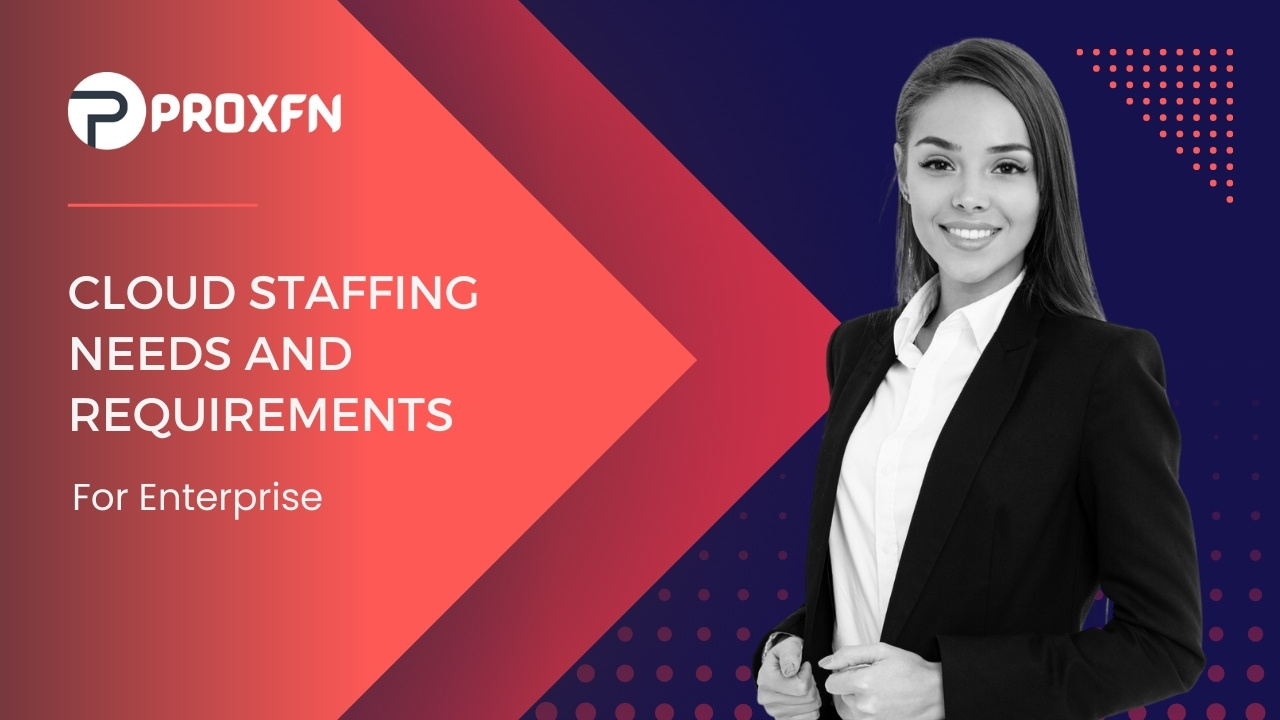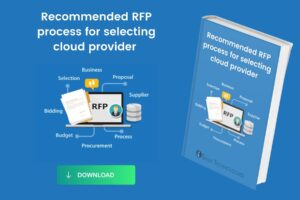As cloud computing continues to evolve, enterprises need to hire qualified and experienced professionals to manage their cloud-based infrastructure. This is where enterprise cloud staffing provides a flexible and cost-effective solution for meeting these needs.
Cloud staffing is an innovative approach to managing and deploying a workforce to support cloud computing initiatives. It has provided businesses with a scalable, flexible, and economical way of managing their IT infrastructure and applications.
According to Forbes, “As cloud technologies become more complex, and cloud providers release new features and services at an unprecedented pace, enterprise cloud staffing needs are growing rapidly.”
Moreover, businesses must ensure to have the necessary personnel and expertise to manage and maintain their cloud infrastructure. In this article, we will explore the key requirements and considerations for enterprises looking to hire enterprise cloud staffing professionals.
Understanding Cloud Staffing
Cloud staffing refers to hiring skilled and experienced professionals who can manage cloud infrastructure and applications. Its primary objective is to ensure that the organization have people with the right mix of skills and expertise to manage its cloud environment. Enterprise cloud staffing can be done in-house or outsourced to a third-party service provider.

The Role of Cloud Staffing in Enterprise
Cloud staffing plays a critical role in the success of cloud adoption in an enterprise.

The following are some of the critical roles that cloud staffing plays in an enterprise:
- Planning and Strategy: Cloud staffing is essential in planning and implementing a cloud strategy. Experienced cloud professionals can help the enterprise identify the right solutions based on their business needs.
- Implementation and Management: Cloud staffing is crucial in implementing and managing the cloud infrastructure. Skilled professionals can ensure the cloud environment is set up and configured correctly.
- Optimization and Continuous Improvement: Cloud staffing is vital in optimizing and constantly improving the cloud environment. Experienced cloud professionals can help the enterprise identify the areas for improvement and implement changes to enhance performance.
Cloud Staffing Needs and Requirements
Enterprises need a skilled and experienced cloud workforce to build a successful cloud infrastructure. The following are the cloud staffing needs and requirements for enterprises:
- Cloud Architects: They are responsible for designing and implementing cloud solutions. They have expertise in cloud architecture, deployment models, and cloud security.
- Cloud Engineers: Cloud engineers are responsible for implementing and managing the cloud infrastructure. They have expertise in cloud platforms like AWS, Azure, and Google Cloud.
- Cloud Developers: They are responsible for developing and deploying cloud-based applications. They have expertise in cloud-native development frameworks and programming languages like Java, Python, and Node.js.
- Cloud Security Specialists: These specialists are responsible for ensuring the security and compliance of the cloud environment. They have expertise in cloud security frameworks like CIS, NIST, and SOC 2.
- Cloud Operations Specialists: Cloud operations specialists are responsible for managing the day-to-day operations of the cloud environment. They have expertise in cloud monitoring, automation, and DevOps practices.
According to the IDC, the worldwide public cloud services market is projected to grow 18.3% in 2021 to $304.9 billion. The need for digital transformation and enterprises’ adoption of cloud technology drives this growth.
Are you looking for DevOps experts to help drive your project to success?
Our staff augmentation experts can provide you with experienced and specialized DevOps professionals.
Conclusion
Enterprise cloud staffing is critical to building and maintaining successful cloud infrastructure. Enterprises need a skilled and experienced cloud workforce to leverage the benefits of cloud computing fully. Cloud staffing needs and requirements include cloud architects, engineers, developers, security specialists, and operations specialists. By investing in enterprise cloud staffing, businesses can ensure they have the right combination of skills and knowledge to manage their cloud environment.





